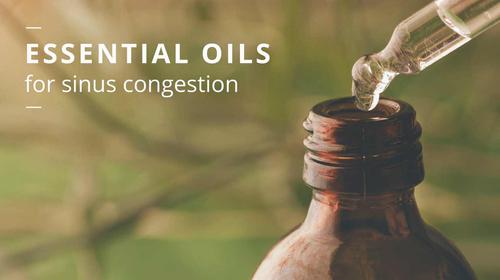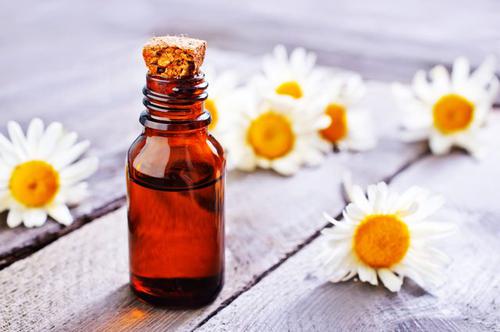Essential Oils for Sinus Congestion and How to Use Them
Sinuses are hollow cavities with mucosal lining found within the human skull. The specific function of the sinus is not well known, but medical officers attribute them with air filtration and voice uses. Sinus congestion, also known as sinusitis, is a condition caused by allergies, the common cold, or bacteria. It can lead to discomfort, breathing difficulties, and lack of sleep due to nasal blockage. Major sinus symptoms are increased mucus production, mucus congestion, headache, facial swelling or pain, pain at the back of ears, eyes, or forehead, fever, and fatigue. As for a treatment method, use of essential oils which are readily available offers a perfect remedy or treatment in comparison to over-the-counter drugs.
Best Essential Oils for Sinus Congestion
Essential oils for sinus congestion provide an excellent treatment. These natural remedies easily penetrate the nasal tissues to relieve the inflammation on the nasal tissues. Below are some of the options available. Before trying any of them, please make sure you consult your doctor.

1. Peppermint oil
Peppermint oil is a fragrant scent best used as a natural remedy for sinus congestion. It contains an antimicrobial, antiseptic and anti-inflammatory component that help condense the swollen blood capillaries. Its menthol component is what unblocks your nasal passages to regain normal breathing. Lastly, seductive and astringent oils are the components that help to relieve headaches and nausea caused by sinus congestion.
2. Eucalyptus oil
Eucalyptus steam distilled oil is best known for flu and common cold treatment. These are some conditions that increase sinus congestion. Firstly, the antifungal, antibacterial, and antiseptic properties make eucalyptus oil a perfect sinus congestion remedy. Secondly, antispasmodic gets rid of mucus and phlegm. Lastly, swollen nasal areas are treated by anti-inflammatory properties of eucalyptus oil.
3. Tea tree oil
Tea tree is another essential oil for sinus congestion, sore throat, and common cough. By breathing in its content, the antifungal and antibacterial properties work perfectly on the above-named respiratory issues. It is smeared on the neck, chest, or the nostrils to make breathing in its content easy.
4. Lavender oil
Some people will be surprised to hear that lavender is named as a natural sinus congestion remedies. However, lavender is a mild remedy that can be used for both adults and children. It is among the safest medications to stock in one's natural remedy cabinet. It is featured among sinus congestion treatments because it has an anti-inflammatory effect. Also, it can fight germs or pathogens that cause respiratory illnesses sinusitis included. Lastly, if the discomfort or lack of sleep becomes too much, topical application on one's chest or feet is a perfect relaxing alternative.
5. Rosemary oil
Rosemary oil is not an overrated steam-distilled plant. It has a number of valuable benefits not found in other remedies. Just a single drop is enough for warming and stimulating immunity. It is used to treat sinus, strep, bronchitis, and other respiratory infections due to the ability to stimulate body immunity. Additionally, for nasal blockage, it contains expectorants, decongestants, and mucolytic properties that perfectly clear the congestion.
6. Thyme oil
When a cold season approaches, having thyme oil within your house is advisable. It is an ideal treatment for breathing system blockages caused by colds, flu or sinus problems. It contains expectorant properties that work perfectly in loosening up the mucus for easy breathing.
Also, it mixes well with other natural products like eucalyptus, tea tree, and lemon juice. But something to note; it is very reactive on the skin. It should be diluted before use and pregnant women or patients with blood pressure problems should not use it.

Best Ways to Use Essential Oils for Sinus Congestion
There are a number of ways in which essential oils for sinus congestion can be used. With the help of a doctor, you can select your best remedy and best usage method among the following:
- Steam inhalation
This happens whereby some distilled water is heated and then a few drops of the chosen essential oil (peppermint is recommended) is added. After the water is heated, it is put in a bowl and then the patient leans over the bowel with their head covered with the towel to inhale the stream. This should be repeated as many times as necessary until the nose is clear.
- Humidifier
This is the least demanding method to heal your sinus problem. All you need is an evaporative humidifier kit and your essential oil. If the sinus problem is caused by dry air, a humidifier kit with a good fan will provide enough moisture to ease the sinus congestion.
- Diffuser
A diffuser is a kit used to disperse the chosen essential oil into the air for breathing purposes. The procedure is adding about three to four drops of essential oil into the diffuser plus about half a cup of distilled water for diluting. The diffuser will fill the air with the essential oil for breathing.
- Neti pot
This is a method whereby essential oil is directed into one nostril while one ear is facing down. One will be breathing through the mouth as the essential oil gets out of the other nostril.
- Bath
It is possible to use essential oils for congestion in your bath tap or shower. Just fill your bath tap with hot water (not too hot) and then add about six to eight drops of your essential oil on a sponge. The essential oil will be diffused as steam which you can inhale to help in nasal decongestant.
Sinus congestion is a miserable and painful infection to go through but with proper professional consultation and following the above guidelines on natural remedies as a reference, be sure you will conquer the trying times. Moreover, drinking plenty of water is also vital. Water adds fluids in your body which help in thinning the mucus causing the blockage.
Now you have known usage of essential oils for sinus congestion. Click to know more about common mistakes you should avoid when using essential oils.
YOU MAY LIKE
-
Best Home Remedies to Ease Your Sinus Problems
-
Surprising Facts About a Lingering Cough: But You Have No Cold
-
8 Best Tricks for How to Make Yourself Sneeze
-
The Reasons Why Every Pain With Breathing Should Be Considered Seriously
-
8 Best Herbal Teas for Your Sore Throat
-
No Voice and Cough? Best Remedies to Relieve Your Misery
-
Want to Know How Often Can You Use a Neti Pot? Scroll Down!
-
Which Is the Best Drink to Ease Sore Throat, Hot or Cold?
-
Why Does It Feel Like Something Is in My Throat?
-
What to Eat With Strep Throat: Best Foods to Eat and Further Tips
